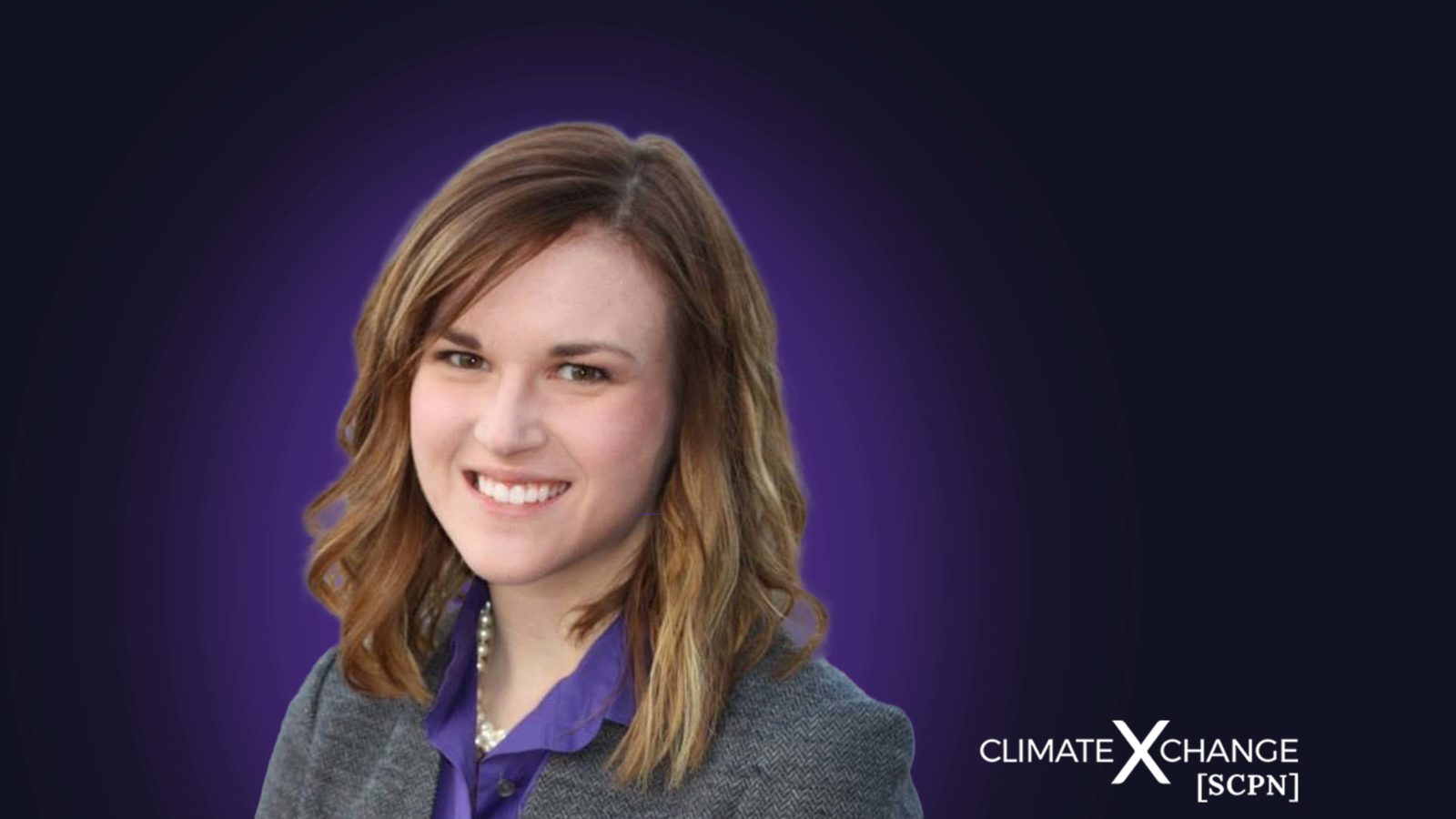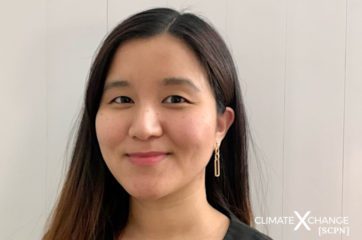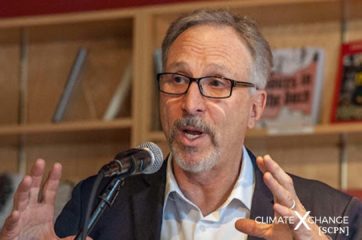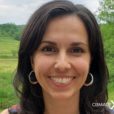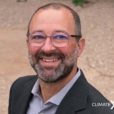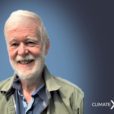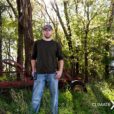All across the country, members of our State Climate Policy Network (SCPN) are fighting to make an impact on climate change in their communities. We have individuals in our Network from all 50 states, each experiencing climate change differently in their local areas and finding unique solutions to build resiliency efforts.
Dainee Gibson-Webb is a conservation analyst working for the Idaho Conservation League (ICL) to push forward sustainable policy and conservation efforts in Idaho. Like many young environmentalists, she struggled to find her place in the climate movement until she began to work for the ICL. With ICL, she combines her research, conservation, and advocacy backgrounds to transform the energy, transportation, and agricultural sectors of Idaho. Additionally, she has begun diving into conservation projects in underrepresented and low-income communities. We spoke with Gibson-Webb on the importance of equitable and sustainable activism.
This interview has been lightly edited for clarity and brevity.
Kira Presley: Can you tell me a little bit about your background and environmental passions?
Dainee Gibson-Webb: Absolutely! I grew up on a family farm in rural Virginia. My father and grandfather taught me about the importance of taking care of the land around you and how, if you preserve that land, it can take care of you, too. I learned so much on our farm and I think that really made environmental science stand out to me as second nature. Secondly, I have always loved animals, and I grew up wanting to be the next Jane Goodall. I’ve just always wanted to make sure that the animals we share this planet with had a chance to survive too.
Kira Presley: I’ve definitely noticed that a lot of environmentalists’ passions tend to stem from their childhoods and individual backgrounds. Could share more details on your path from Idaho State University to where you are now to shed some light on different paths that young environmentalists can take?
Dainee Gibson-Webb: I’ll actually go back a little further. I chose Furman University, which was where I went to undergraduate school because, at the time, it was the first and only undergraduate sustainability science program in the country. I went in as a sustainability science major. I decided to add biology as a second major because I was so interested in ecology and conservation biology. I really tried to make myself the best conservation scientist that I could. I was able to supplement that socio-cultural background from sustainability science with a deep understanding of ecological science as well. I found it all super interesting, and I was really into it. I got some research gigs with a great professor, Dr. John Quinn, while I was there, and I was able to do some on-the-ground conservation work doing bird surveys, talking to the landowners, and working with our local Land Trust there. I loved my research, loved it. So when my research advisor suggested that I apply for graduate school,they were very, very helpful in that process in telling me that grad students make the research go round and by giving me the resources to be a strong applicant for grants and competitive programs. I was lucky enough that I was able to get on an NSF EPSCoR (National Science Foundation’s Established Program to Stimulate Competitive Research) grant for graduate school at Idaho State University; it was called Managing Idaho’s Landscapes through Ecosystem Services. That was what was able to support me and my graduate school process.
I moved a month after I graduated from undergrad to a little town in southeastern Idaho I had never heard of, and I said, ‘Okay, I can do this, I can go anywhere for two years.’ It’s now been five years, and I still haven’t left Idaho. I did my research and I really got to know the environment that I was living in. Not just the beautiful nature and proximity to Yellowstone and the Tetons, but also the people and how, no matter their background, they really cared about their natural resources and wanted to conserve those values that were so deeply tied to the Idahoan environment. After I graduated with my master’s degree, I moved to the western side of the state to Boise, which is our state capitol and the one urban area in Idaho. I just started applying to whatever I could find and I couldn’t be picky. My first job that I took out of school was working at a pharmaceutical company. I was a couple months out of grad school and I was like, ‘okay, time’s ticking, I need to take whatever will take me.’ I was a technical writer for this company and I had to make sure that our practices in our pharmaceutical lab met the FDA requirements. That gave me some good experience with working on how to adhere to regulations, how to read regulations, and understand how policies actually affect business. I didn’t really think about that when I took the job, I was just like, “whatever, it’s a job”. It ended up being actually really valuable because I now work in policy advocacy to promote climate change policies in the state of Idaho. I never stopped applying for other environmental jobs while I had my previous job. I had so many failed interviews and I would just be devastated. It was hard. I just had to keep telling myself that eventually the right fit would come along. If I didn’t fit right in the interview process, I wouldn’t want to work there anyway. It’s a two way street.
Kira Presley: I can’t even imagine how difficult it was finding the position that worked for you. I’m terrified for post-graduate life, for sure. Especially nowadays it seems as though the environmental movement either doesn’t have enough activists to accomplish our goals or it’s completely oversaturated. So many people are passionate about the environment, so it’s very difficult trying to figure out where you fit within the climate movement.
Dainee Gibson-Webb: After that, I worked towards getting my teaching certificate. I thought that at least I can work in schools, teach people about biology, and maybe make some environmentalists out of those kids. I learned a lot about teaching and education. I then realized that outreach is really important, and soon after saw the Idaho Conservation League (ICL) job post. Reading the job description felt right. I never realized that what I really wanted to do was advocacy. In my academic training, we didn’t talk a ton about policy and advocacy. That was super interesting to me especially because policy was an avenue where scientists could have a really big impact. The fit [with ICL] was immediately perfect. I’ve been with ICL now for a year and a half and I work on our climate change team. It’s something that I never really specifically anticipated myself working on. I mean, we grew up knowing that climate change was a thing and it was happening. It’s never been controversial for people our age and younger. That’s the way I’m going to impact the world, if I can. This might be the biggest issue that we are facing.
Kira Presley: Considering our environment feeds, nurtures, and shelters us, it seems like this could be our most prevalent issue for sure.
Dainee Gibson-Webb: Yes, I feel like energy and advocacy was a very rewarding field to work in. I had never worked in anything in the energy realm at all before the ICL. Never in my life, before the last two years, have I thought so much about where my electricity comes from!
Kira Presley: As I’ve grown up, I’ve realized that policy, bureaucracy, and politics is so prevalent. Within your position at the ICL, what exactly have you been working on? What do your day-to-day responsibilities look like?
Dainee Gibson-Webb: I am our conservation analyst, so I do a lot of our technical stuff. I support our policy team, which is a lot of people that have been working on policy for a long time. Some of them are environmental lawyers as well. I do a lot of the modeling, mapping, and analysis that are necessary to support our policies. Essentially, I go through and check the data to make sure that it is showing that, for example, it is more expensive to keep running coal plants than it is to switch to solar. My job is to go through and understand that data to create something that is meaningful to the general public. I do a lot of this on our energy front. That’s definitely the biggest, most developed part of our climate campaign. We are also working to reduce carbon dioxide emissions from the transportation industry as well as mitigate emissions from our agricultural sector. Energy, transportation, and agriculture are the three biggest sources of greenhouse gases in the state of Idaho, so that’s kind of how our campaign is designed, to address those three biggest sources of pollution. I work mostly with our energy stuff, but I’ve also done some work on wildfires in Idaho and how climate change is influencing them. Essentially, the largest majority of my work is focused on providing analytical support for our climate campaign.
Kira Presley: I remember when I was reviewing the ICL website, there was a statement about defending the land, air, and water.
Dainee Gibson-Webb: Yeah, that’s our slogan. We protect the air you breathe, the water you drink, and the wildlife and land you love.
Kira Presley: I love that. Do you or the ICL have any current successes or anything else that you would like the opportunity to brag about?
Dainee Gibson-Webb: Yes! Recently, we have been working with the utility up north, which is called Avista. We worked together in 2019 and our energy associate was able to identify some funding, around $1.6 million. People can apply to this fund and receive money to do energy efficiency projects. We sit on the group that oversees that funding, along with some other key stakeholders. We were able to help support the Community Action Partnership organization up in North Idaho, which is the organization that performs low-income weatherization projects. With that, we were able to help secure for them $250,000 to support health and safety concerns. Often, these Community Action Partnership organizations will go in to do a project in someone’s home to weatherize it and there will be a hole in the roof or something similar. The strict regulations for energy efficiency and low income weatherization don’t allow you to address the health and safety needs of a hole in the roof, but then you can’t perform the energy efficiency solutions that you need. So, you need to fix that hole in the roof before you can update their windows, their water heaters, and that sort of thing. We were able to set up a fund to provide some money from the utility that will allow the Community Action Partnership or CAP group to go in and fix the hole in the roof, and other similar issues, and then unlock the rest of the traditional low-income weatherization funding. It has been super rewarding to be able to help fund that because those things will truly help individual people’s homes and their wellbeing, so that’s been really cool to see.
Kira Presley: Those projects are so important. Speaking of, there’s been a lot of intersectionality between climate change, social justice, and equity. What are your thoughts on equitable activism? Does that play a big part in your role in the ICL?
Dainee Gibson-Webb: Yeah, we actually have a project that deals with all of those issues that I’m working on right now. There is a proposal to develop a really big wind farm in south-central Idaho. It would be a couple of miles from the Minidoka National Historic Site, which is a national historic site of one of the Japanese internment camps, where Japanese Americans were wrongfully incarcerated and held in remote locations. There is a lot of concern in that community that the view of these big wind turbines could take away from the feeling of isolation that the incarcerees felt when they were at the camp. We’ve been working with the community to make sure that they understand how to participate in the commenting process with NEPA to make sure that they can share their voice and their stories.
From just meeting with them and talking with them, I can come up with some potential solutions. For example, what if we switched it to a solar project? Or what if we move the wind turbines back? Since I am not a member of that community, I don’t know if that’s actually realistic or if it’s going to preserve the integrity of the historic site or not. I think the biggest thing that I have learned throughout the process of working with this community is just how important it is to use your own power to lift up the voices of others who are perhaps unfamiliar with the processes that we at the ICL, or other environmental groups, are familiar working within. We have that expertise, but we need to use our expertise to raise up the voices of those who are really impacted by these decisions. Being able to just be there and make sure that these underrepresented voices are heard is super important. This is something that I don’t know that I had necessarily realized before I worked on this project, so it’s been really interesting to learn about and see real issues in action. Essentially, this project, as it is proposed, could potentially be really damaging to this culturally significant historic site. Trying to weigh those issues is then really interesting.
Kira Presley: Wow, it makes my heart sing that the ICL is paying attention to the history, community, and voices of the people in the areas that they’re developing. In today’s world, there are so many NGOs, environmental activists, and development analysts that are looking to develop the areas that we stole from, and so much worse, hundreds of years ago. The issue is that so many of these people are not paying attention to the history of those places and communities, so there’s a very common approach of applying only surface-level solutions. It’s so important to hear the people who you’re trying to help and listen to their knowledge.
Dainee Gibson-Webb: I personally don’t have a ton of experience yet, but my colleagues have extensive experience working with the various tribes that are located within Idaho on certain issues. It’s been really interesting learning from them about how to respect and honor the sovereignty that these people have. They were here before me and the people that look like me, so it’s important to respect equally and value equally the perspectives, voices, and opinions of those people.
Kira Presley: They know the land so much better than we do. To change the conversation a little bit and look at the climate crisis at large, what problems and solutions do you think are the most prevalent that we need to work on to mitigate climate change for current and future times?
Dainee Gibson-Webb: I definitely think that increasing our renewable energy resources is huge. I think that’s shown by the administration right now as that’s one of their major goals. Along with that is the equitable and just transition away from fossil fuels to make sure that the communities that are mining coal can transition into different industries. Creating a more climate smart, climate friendly future is super important in terms of equity. I definitely think that those are two major things.
In general, the way our economic systems are run right now just doesn’t make sense with the reality of what we’re experiencing with climate change. We need to try to see what we can do to reconcile that and hold industries accountable. We can’t just say, ‘oh, well, this is the way it’s always been; this is just capitalism and this is how it has to be.’ This is our system and we must come up with creative solutions to try to change things for the better, make clothing and manufacturing more sustainable, produce less plastic to reduce our waste, and so much more. I feel as though, especially as an environmentalist, I try to do all the things that I can to reuse things and live sustainably. Unfortunately, those are all just a drop in the bucket compared to how different industries are polluting and damaging our environment. I think that, yes, it’s important to have a focus within ourselves to try to make personal changes, but we need to turn that outward to really make a difference within the systems in which our society operates. That’s where the big tipping points are going to be.
Kira Presley: Absolutely, it seems like being able to make any change in this world is very policy-based. It all boils down to the political systems that need to change. The solutions that will make real change are not how many trees we plant; we need real, systemic changes. What keeps you motivated to keep moving on with your work, especially right now with the impending climate crisis and political turmoil?
Dainee Gibson-Webb: Of course, my older sister just recently had my first nephew and then my sister-in-law had a second nephew about a month later. Wanting to make the world a better place for future generations has become extremely relevant to me within the past couple months. Seeing these innocent, helpless little babies that are related to me makes me want to make things better for them. Personally, I love animals so much and want to preserve and help wildlife from getting decimated by human selfishness. That really keeps me going. That was why I wanted to work on the climate campaign to begin with. I’ve always been super passionate about wildlife and if the climate isn’t stable, then our wildlife populations are going to disappear. Everything on our planet as we know it is contingent on our properly-working climate and we’re not gonna exist as people if the climate isn’t how it is supposed to be.
Check out the Idaho Conservation League and more information about Dainee Gibson-Webb here!
Email Dainee Gibson-Webb at dgibson-webb@idahoconservation.org if you have any questions, comments, or would like to connect!

